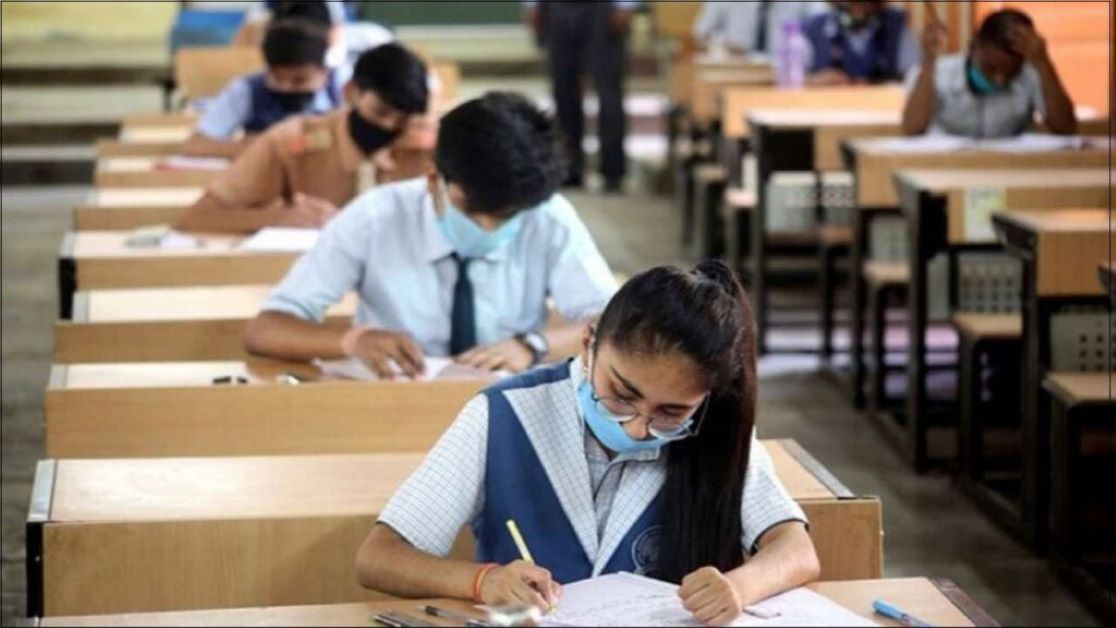In a groundbreaking decision, the Punjab Education Curriculum Training and Assessment Authority (PECTA) has officially announced the cancellation of the Grade 5 & 8 Board Exams. For grades 5 and 8 for the academic year 2025.
This significant move was revealed by 24News following a high level meeting led by Dr. Shahenshah Faisal Azeem, the CEO of PECTA. The announcement marks a pivotal moment in Pakistan’s education system, signaling a shift toward more progressive and student centered assessment methods.
This decision is expected to ease the academic pressures faced by students, particularly those at the primary and middle school levels. By eliminating the traditional board exams, the education system aims to focus more on fostering conceptual learning and deeper understanding. Moreover, moving away from the stress-inducing memorization techniques that have traditionally dominated the classroom.
The Purpose Behind the Cancellation of Board Exams
The cancellation of the grade 5 and 8 board exams is not just a procedural change. Also a part of a broader vision to improve the educational experience for students. The reasons behind this decision are multi-faceted. The main aim being to reduce the overwhelming pressure of exams on students.
The key reasons for this shift include:
- Reducing Exam Pressure: The cancellation aims to lower the immense stress and anxiety that traditional exams cause, especially for younger students.
- Encouraging Critical Thinking: By moving away from rote memorization, the focus is on developing students. Additionaly, ability to think critically and apply knowledge in real-life situations.
- Promoting Comprehension over Memorization: The new system emphasizes understanding concepts deeply rather than simply memorizing facts for exams.
Another key aspect of this change is aligning the Pakistani education system with modern global trends. Many countries worldwide have already adopted continuous assessment models that prioritize regular evaluation over one-time high-stakes exams. This approach is believed to be more in tune with the natural learning process. As it allows for ongoing feedback and development throughout the academic year.
- Global Alignment: Countries such as Finland, Canada, and Singapore have moved toward continuous assessments, focusing on regular feedback rather than a single, stressful exam.
- Natural Learning Process: Continuous assessments provide students with opportunities for feedback and improvement throughout the academic year, creating a more natural learning environment.
Furthermore, the move aims to promote a child-centered educational system that prioritizes learning for understanding, rather than simply focusing on performing well in exams By focusing on students’ holistic development and well-being, the new assessment model encourages. Both mental health and academic growth, which is especially crucial for younger learners.
Comparing Traditional Exams with the New Assessment Approach
To better understand the shift in approach, let’s compare the traditional board exams with the newly introduced assessment-based system:
- Traditional Board Exams: These were high-stakes, once a year exams focused on memorization, which often caused stress and left little room for creativity or flexibility.
- New Assessment-Based System: This system emphasizes ongoing, school based assessments that evaluate understanding over time. It focuses on conceptual learning, critical thinking, and provides flexibility, with regular quizzes and projects offering consistent feedback.
This change prioritizes deeper learning and critical skills, moving away from rote memorization.
New Student Evaluation Methods Replacing Board Exams
The new assessment techniques are designed to support learning and reduce stress for students. These include formative assessments like quizzes, tests, and projects. To monitor progress, as well as summative assessments conducted at the school level without the pressure of board exams. Teachers will actively observe student participation and creativity, while assessments will focus on conceptual understanding rather than memorization.
Exam Schedule
Although the board exams for grades 5 and 8 are canceled, Punjab will continue the matric (9th and 10th) and intermediate (11th and 12th) board exams as planned. These exams are critical milestones in the education system. Play essential for evaluating students’ preparedness for higher education or vocational training.
Global Trends in Education and PECTA’s Vision
- Standardized testing is avoided until high school in Finland, allowing students to focus on cultivating a love for learning and reducing stress during the early years of education.
- School-based assessments and portfolio reviews are the focus in Canada, offering a more personalized approach to evaluating student progress through continuous feedback.
Educational Experts and Public Response
The response to the cancellation of grade 5 & 8 exams has been largely positive
- Educators Support: Many teachers see it as a move towards a less stressful, more meaningful education.
- Teacher Reactions: The new system is expected to encourage creativity and classroom participation.
Parents Reactions
- Concerns: Some worry about the accountability of the new system.
- Positive Sentiment: Many parents feel relieved as the reduction in exam pressure eases their concerns.
About Parhlo Pakistan
As education reforms unfold across the country, staying informed about the latest news and developments is crucial. Parhlo Pakistan is a trusted online platform dedicated to delivering the most up to date information, news, and insights on a wide range of topics, including education. By keeping readers informed, ParhloPakistan plays a pivotal role in helping individuals navigate significant changes like the cancellation of grade 5 and 8 board exams. For more details, visit Parhlo Pakistan
Conclusion
The cancellation of grade 5 and 8 board exams by PECTA is a monumental step forward in transforming Pakistan’s education system. By shifting the focus from high stakes exams to continuous assessment. PECTA is promoting a more holistic, student centered approach to learning.
This reform promises to reduce stress, enhance critical thinking, and provide a more meaningful education experience for students in Punjab. Moreover, potentially paving the way for similar changes across the country in the coming years.
Stay informed with the latest news on educational reforms, exam updates, and student-centered learning strategies in our News Section.




